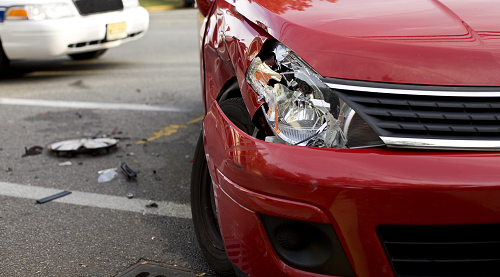TUESDAY, APRIL 20, 2021
Forty-nine states require drivers to carry auto insurance in order to drive legally, and Georgia is one of them. However, Georgia law only obligates a driver to carry liability insurance, which is only designed to insure you against the damage that you cause to other people, not yourself.
Still, what happens if you damage your own car in an accident, or if a hazard comes along to damage your vehicle? How can you update your auto insurance plan to provide assistance for such losses? 
Though physical damage insurance is not mandatory in many cases, it’s still a critical component of auto insurance that can work to the policyholder’s advantage. You should always add this benefit to your plan, and usually you can get several different types of physical damage coverage in one package. Be sure to talk to your agent about the perks of collision insurance, comprehensive insurance, uninsured motorist coverage and the added benefit of gap insurance.
Georgia’s Mandatory Insurance Laws
Georgia is an at-fault insurance state. This means that drivers who cause accidents within its borders are the ones who have to pay for the property damage or injuries done to other parties who weren’t riding in the car with them. These might be other drivers, their passengers, pedestrians, or someone whose property you damage if you hit it.
This restitution that you owe third parties will be provided by the liability insurance within your auto insurance policy. Because Georgia is an at-fault state, the law requires all registered drivers to carry this coverage as an assurance that they will be able to meet their obligations to others.
The minimum mandatory liability insurance required for Georgia drivers is:
-
$25,000 Bodily Injury Liability Coverage per person
-
$50,000 Bodily Injury Liability Coverage per accident
It is recommended that you carry more than the minimum amounts of liability coverage. The per-person bodily injury liability limit will pay up to its limit for the injuries of one person injured in an accident. If more than one person was injured, then the per-accident limit will kick in and be paid to its maximum (if necessary). However, the per-person limit will still apply to each individual’s injury costs.
Property damage liability insurance will only pay up to its limits for all third-party damage costs, not for each item of damaged property. Still, a time you won’t see any help from liability insurance is when your own vehicle sustains damage, and to get this benefit you should invest in physical damage coverage.
Collision, Comprehensive and Other Physical Damage Benefits
If your car sustains damage, then you might want to turn to your auto insurance for assistance. After all, it is designed to help you cover unexpected, unpreventable costs related to vehicle problems. The good news is, there is coverage that can help.
Consider adding the following benefits to your auto insurance:
-
Collision Insurance: Helps you pay for damage to the car following a wreck. It might pay for full repairs, or even car replacement if you total the vehicle. However, keep in mind that most policies limit how much money you can claim for the damage. Therefore, set up coverage that adequately reflects the value of the car.
-
Comprehensive Coverage: Insures car damage that result from hazards other than collisions. Covered incidents might include vehicle fires, weather damage (including hail and flood damage), theft or vandalism damages. Animal strikes are often covered under this benefit, too. These benefits might exclude certain damage, or not pay the full price to repair the car.
-
Uninsured Motorist Property Damage Insurance: Perhaps you have a wreck, but it is another driver’s fault. However, that driver lacks the liability insurance to cover your damage. In this case, uninsured motorist coverage can help you pay for your own losses.
-
Gap Insurance: If you have financed your car, then you will still have to pay off the loan even if you total the car. Gap insurance can help you pay the difference between a comprehensive/collision coverage settlement and the remaining cost of the loan.
Though you might not be required to carry this coverage by law, many lenders require it, nonetheless. Those who finance their cars should therefore ask their lenders whether they have those requirements in place. If they do, then make sure that you add this benefit to your policy.
Everyone needs a reliable vehicle. If you don’t have one that functions properly, it might prove unsafe. So, neglecting to make proper repairs could put you at even more risk of harm. Vehicle damage insurance might guarantee you can make repairs easily. Don’t put off getting this coverage, as it might save you a lot of trouble down the road.
No Comments
Post a Comment |
|
Required
|
|
Required (Not Displayed)
|
|
Required
|
All comments are moderated and stripped of HTML.
|
|
|
|
|
|
NOTICE: This blog and website are made available by the publisher for educational and informational purposes only.
It is not be used as a substitute for competent insurance, legal, or tax advice from a licensed professional
in your state. By using this blog site you understand that there is no broker client relationship between
you and the blog and website publisher.
|
Blog Archive
2024
2023
2022
2021
2020
2019
2018
2017
2016
2015
2014
2013
2012
|